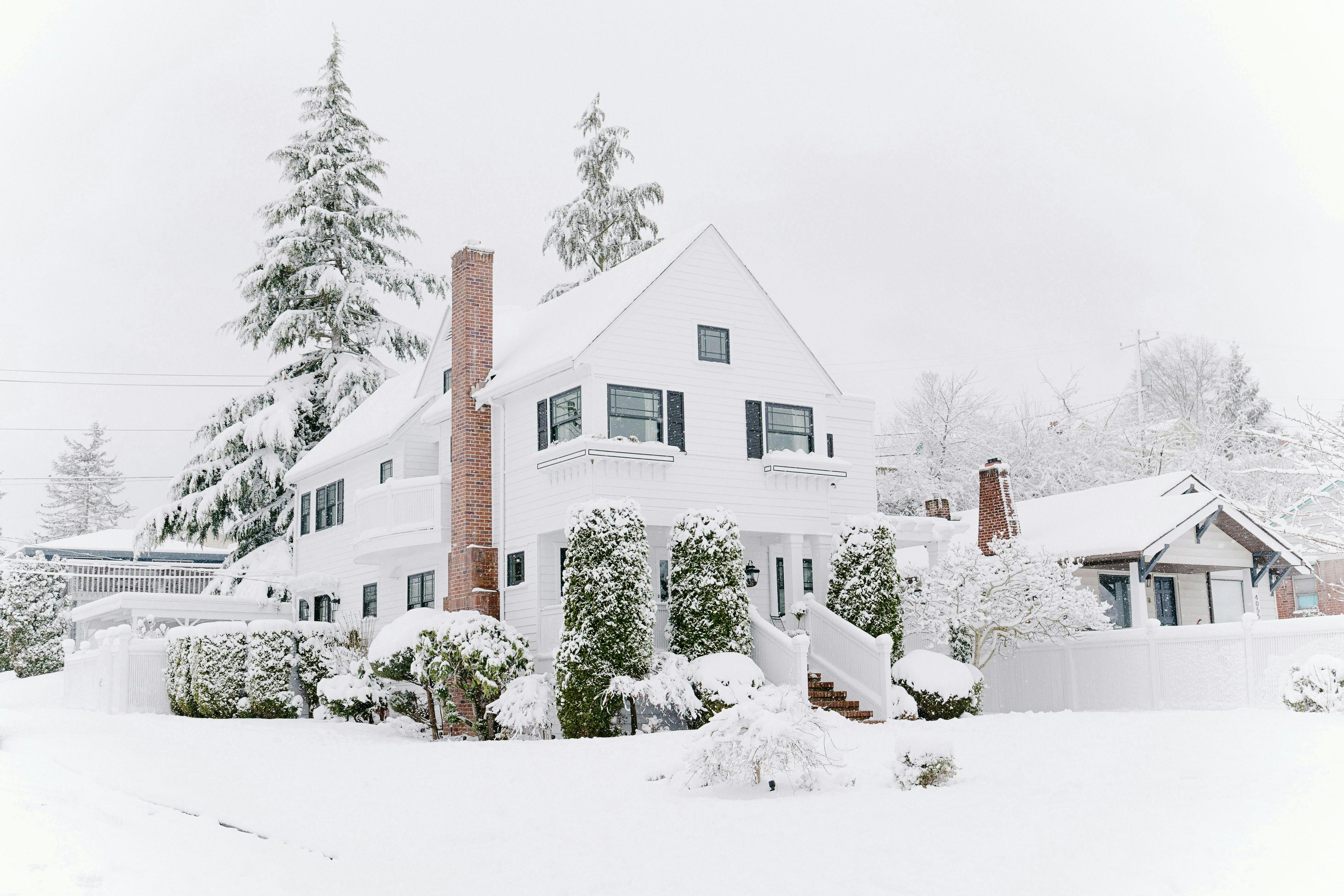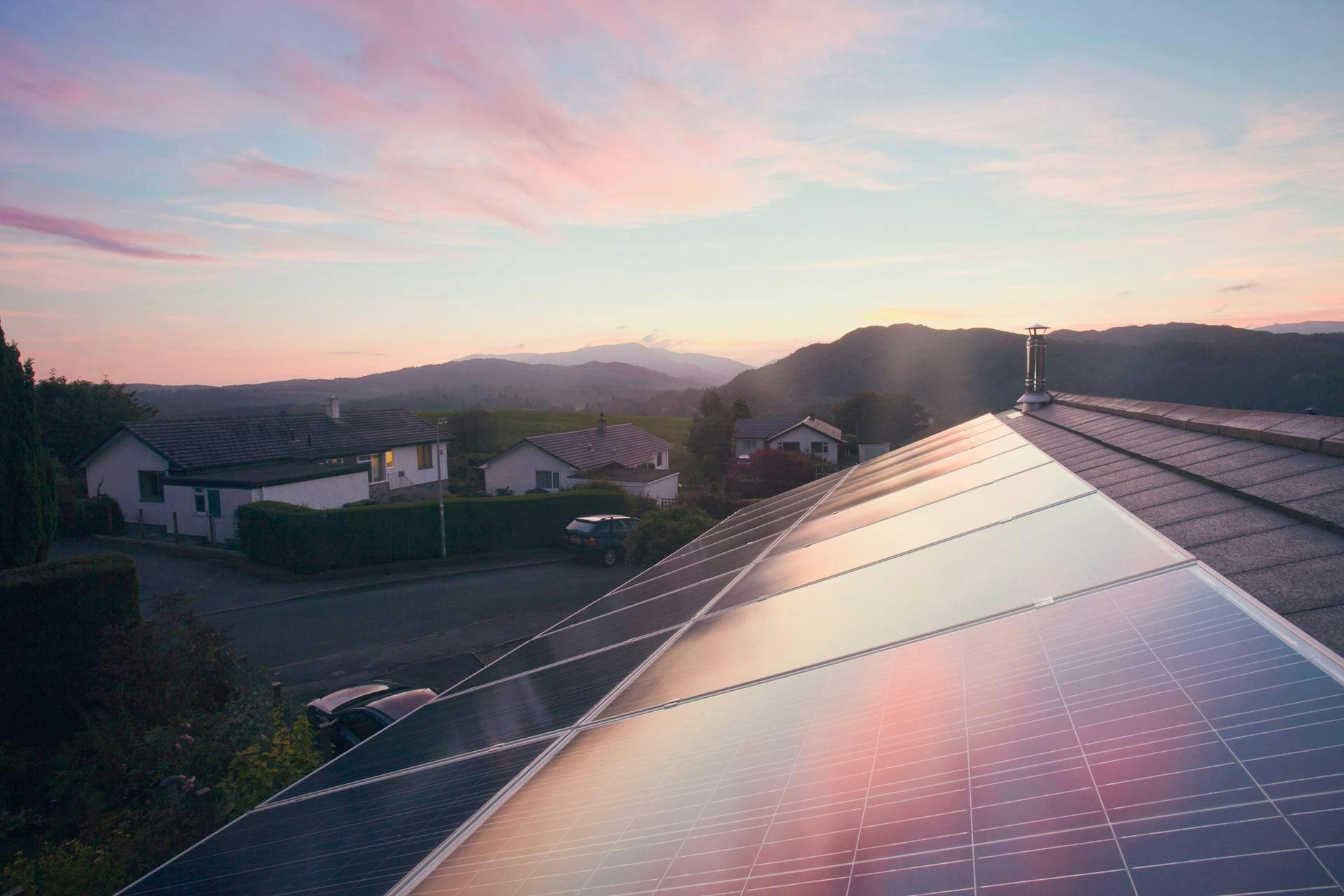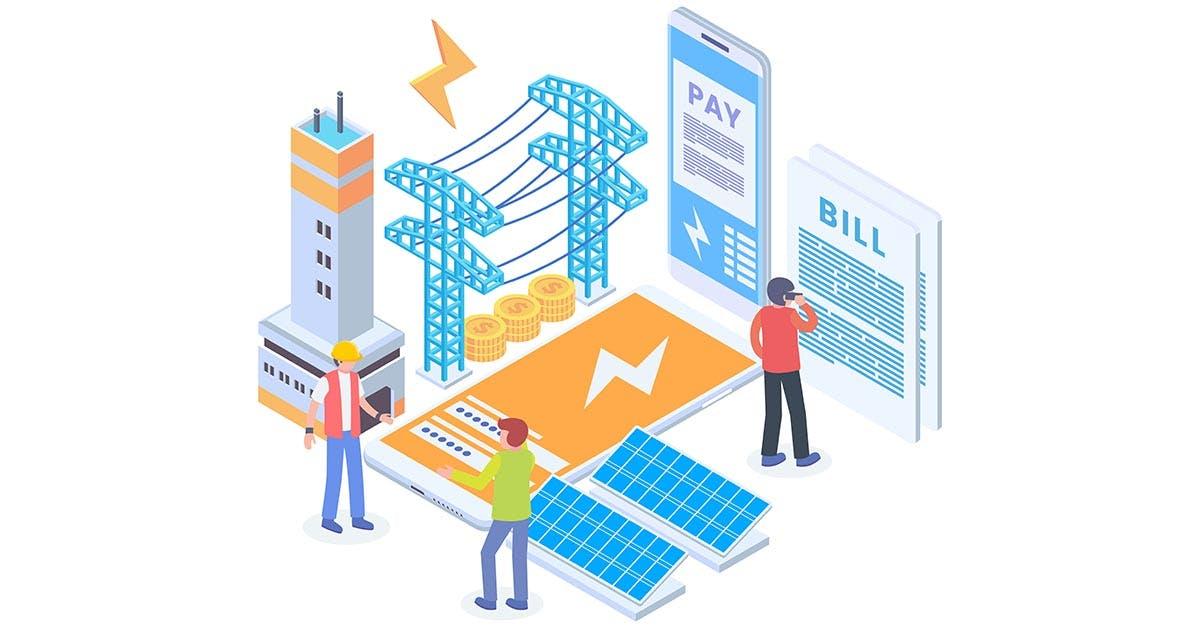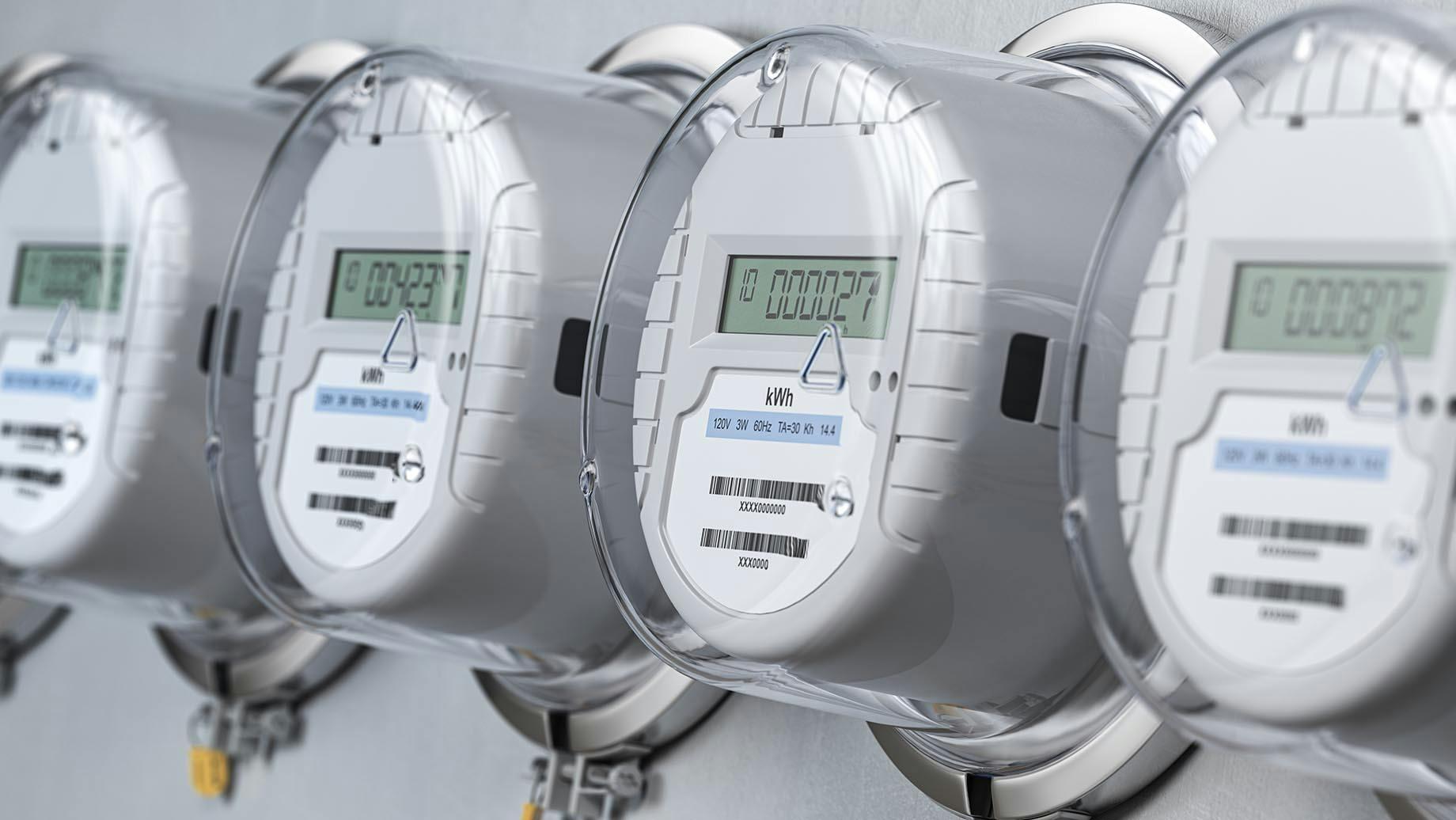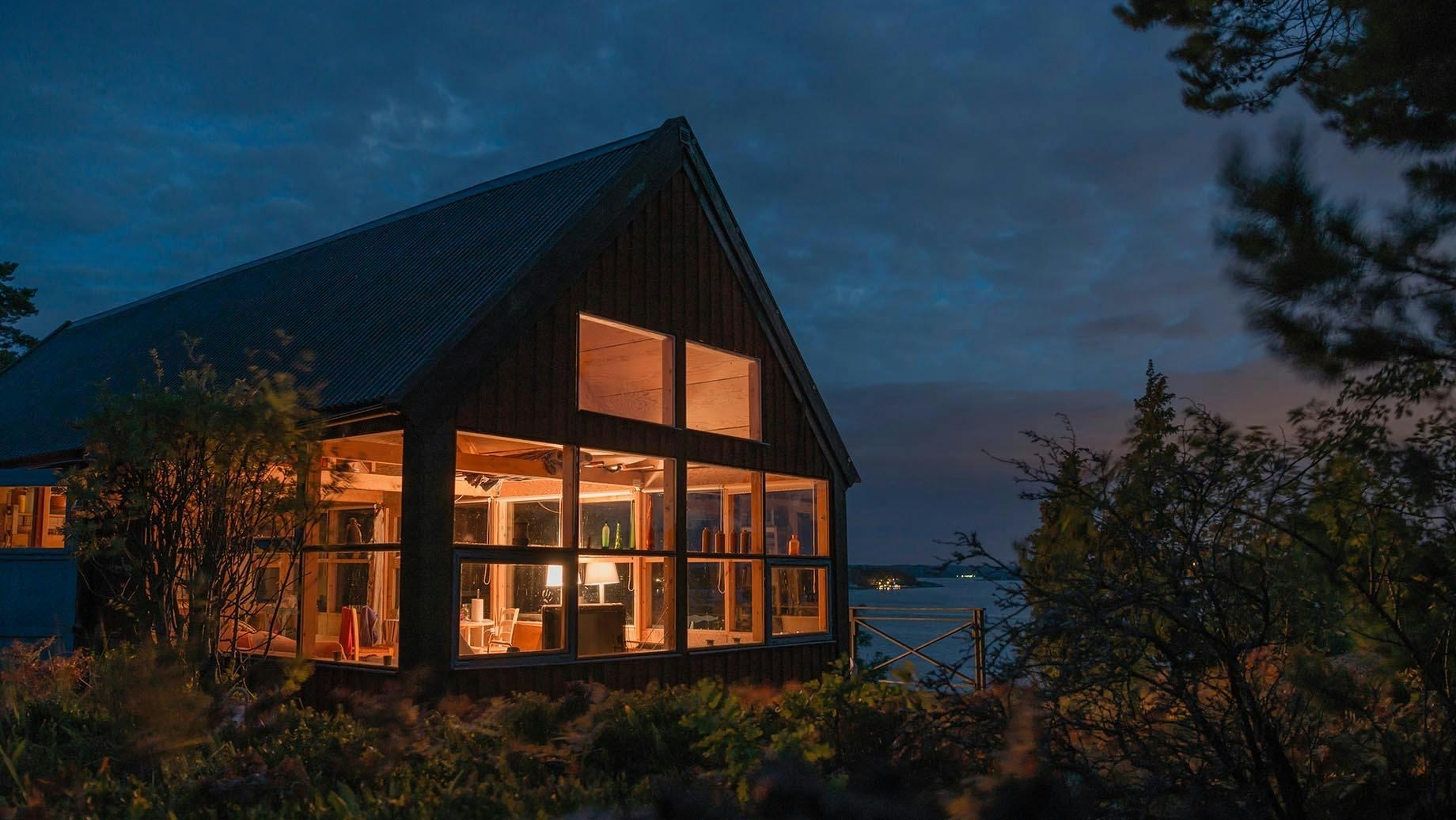
How Much Are Utilities Per Month For A House?
Inspire Clean Energy
8 min read
category: Clean Energy 101
Don't worry about climate change— do something about it.
Our clean energy plans are the easiest way to reduce your home's carbon footprint.
Switch to clean energyHow to estimate utility costs for your house
Paying utility bills is just something we all have to do — unless of course you find a way to live entirely off the grid — but that doesn’t mean you shouldn’t be mindful about how much you pay for them each month. It can also be difficult to know what you should expect to pay when moving into a new home, especially if you are moving to a different state.
In this guide, we will look at what utilities are, what their average cost is, how that cost varies, and what you can do to minimize your electricity costs. That way you’ll know whether you’re paying the right amount and discover where you can reduce your expenses.
What are home utilities?
Home utilities provide us with the services that allow us to live comfortably. We use them all the time and they have to be budgeted for. Most of us couldn’t live well without them! Utilities such as water, electricity, and gas help keep our homes comfortable and lives fulfilled.
What would be considered the main types of home utilities?
There are six services that are commonly agreed upon as being basic home utilities:
Most of us can’t do without power, water, or trash removal, and these days it would be difficult to live your life without internet access as more and more businesses move to remote working.
How much should I budget for utilities for my house?
How much you budget for your utilities depends on several factors:
Where you live: Utility bills vary on a state-by-state basis and by region or county within each state. Part of this comes down to the geographical location and part the cost of living of the neighborhood you live in. For instance, Washington state is not an expensive place compared to the national average, but the Seattle area specifically can be much, much higher.
How big your home is and how many people live there: The bigger your home is and the more people who live there, the more the utilities are going to cost. A one bedroom apartment will have lower utility bills than a three-bedroom house, which in turn will be less expensive than a six-bedroom mansion. Similarly, two people live more cheaply than three.
The climate and time of year: Living in areas of the US that experience extreme temperatures will make your utility bills larger than the average. The greatest use of power in a home is for heating and cooling. The technologies for warming a house in the winter or cooling it in the summer are very power dependent. Improved construction techniques and increased insulation in homes have reduced the amount of electricity and natural gas required for keeping a home at a comfortable temperature, but the climate still plays an important part in defining your energy costs.
How much are average utilities for a house?
Across the US, homeowners should set aside around $400 a month for their home's utilities. Oftentimes, the breakdown looks something like this:
- Electricity: $117.65
- Natural gas: $72.10
- Water: $70.39
- Trash/Recycling: $14.00
- Internet: $60.00
- Cable: $85.00
These are very much average figures. Usage month-by-month varies significantly depending on the factors mentioned above, but these amounts do give a general picture of the costs involved.
What should my utilities cost?
The national averages should give you a guide as to what your utilities will add up to, but these are ballpark figures only. You have to factor in all the variables: your home's location, size, climate, and the cost of living in your neighborhood. If you are buying a property, you should ask the vendor for copies of recent utility bills. If they refuse, think twice before continuing. This is one area where the information should be transparent.
Are utilities a fixed cost?
The amount your utilities cost varies according to the time of year and the price of the utilities themselves. For instance, in the winter, especially in the northern part of the country, daylight hours are short and the use of electricity for lighting increases. When it’s hot or cold, you have to pay for heating and cooling. During the summer vacation, more people spend more time at home, and use of electronic devices and appliances rises. These sort of variables are almost infinite.
And the price of utilities can be subject to change unless you’re on a fixed plan.
This can make budgeting for utilities a struggle. Not knowing quite what to expect with your finances always makes life a little more difficult.
At Inspire, we offer fixed plans that make estimating your electricity costs much easier, while doing good for the environment, too! Our fixed plans offer the security of knowing exactly what your bill will cost each month either by kWh or through a subscription.
With our subscription plan, you'll pay exactly the same amount every month, based on your energy usage and the profile of your home, rather than being charged per kWh. Predicting your finances is a lot easier when you know exactly how much you need to put aside every month.
What are the monthly costs of owning a home?
Owning a home involves a variety of costs that can recur every month, seasonally, or even yearly. First there is your mortgage payment (unless you’re lucky enough to own your home outright) and then the addition of your utilities – electricity, gas, water, trash removal, internet, and cable, if you want it. Of course, there will also be property taxes, which vary significantly depending on where you live.
You must also budget for repairs and replacing of appliances, and you may need to put aside Homeowners’ Association fees. Homes, even new ones, require maintenance regularly. Try to put some money into a savings account for these repairs in the future.
How much do utilities cost for a 2000-square-foot house?
For an average American family, a 2000-square-foot house provides enough space for four or five people to live comfortably with three or four good-sized bedrooms. The median size of a home in the US has grown from 1,525 square feet in 1973 to a much larger 2,435 square feet in 2018, so a 2000 square foot house is pretty close to that average.
Median monthly utility costs on a state-by-state basis run from around $350 in New Mexico, Utah, and Colorado to about $400 in New York State and California up to a high of $450+ in Florida and South Carolina.
How much electricity does a 1500-square-foot house use?
Although relatively smaller than average, the monthly costs for electricity will only be slightly less than the national average, though that depends on how many people live in the home. The size will certainly lower the heating and cooling costs somewhat, but other power usage, water costs, trash colleciton, internet, and cable will be pretty much the same.
According to the US Energy Information Administration’s (EIA) figures for 2018, the average monthly costs for electricity run from under $100 in Colorado, Idaho, Wisconsin, Illinois, and Maine to the average of about $117 in Oklahoma, Rhode Island, and Arkansas to a high of $168 in Hawaii and $153 in Connecticut.
How much electricity does a four-bedroom house use?
A four-bedroom house is close to the national average, though the number of people who live there has shrunk from 3.01 in 1973 to 2.53 in 2018. So the figures for the 1500-square-foot house above are still ballpark. Don’t forget that locality matters. Though the average electricity cost in Washington state is running at $93.34 a month, the Seattle area is more than double that.
What pulls the most electricity in a home?
Keeping your home's temperature comfortable is the most power-hungry part of an electricity bill, with a central air conditioner using around 47% of the total. Water heaters take another 14%, washer and dryer an additional 13%, and keeping your home illuminated takes 12%, depending on the type of lightbulbs you are using.
How can I lower my home electricity bill?
There are lots of ways you can reduce your electricity bill, many of which we discuss in our blog post, Why is My Electricity Bill So High?.
We all need utilities, and they certainly aren't free. But by being aware of what they should be, you can make sure you are not squandering your hard-earned cash and keep better control of your budget.
At Inspire, we can help you do this by eliminating changes in pricing or even ensuring you always pay the same amount. On top of this, Inspire ensures you are using electricity from clean, renewable sources, helping the country and the planet!
At Inspire Clean Energy, we are a renewable energy company passionate about empowering our customers to do the right thing for the environment, themselves, and their families. We want to make it easy and affordable to choose clean energy.
Not sure if renewable energy is right for you? Read the latest Inspire Energy reviews to see how we've helped customers make the switch.
Don't worry about climate change— do something about it.
Our clean energy plans are the easiest way to reduce your home's carbon footprint.
Switch to clean energy
Inspire Clean Energy
We're on a mission to transform the way people access clean energy and accelerate a net-zero carbon future.
Learn more about Inspire →Explore more
Recent Posts
Top Articles







